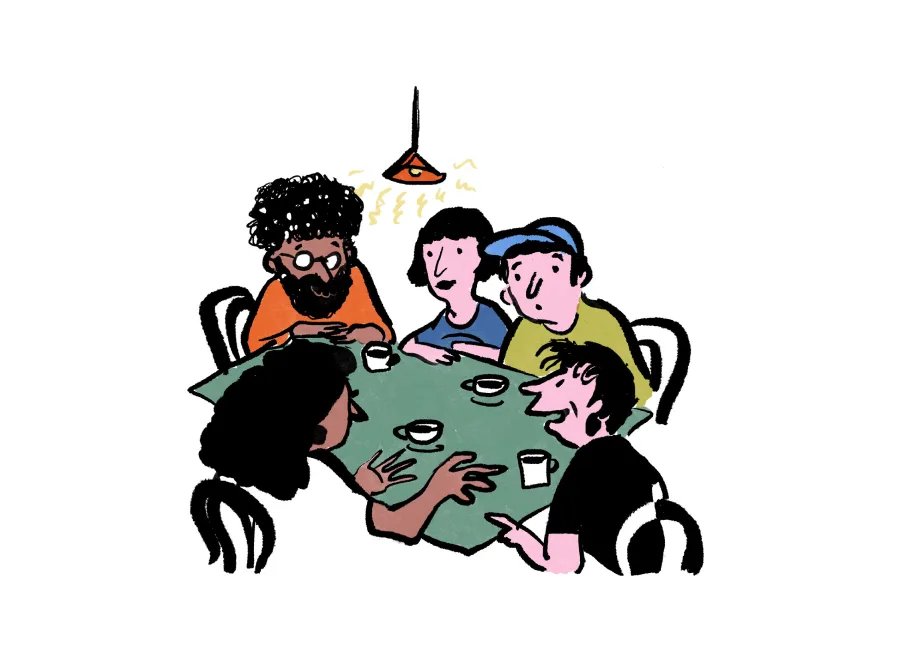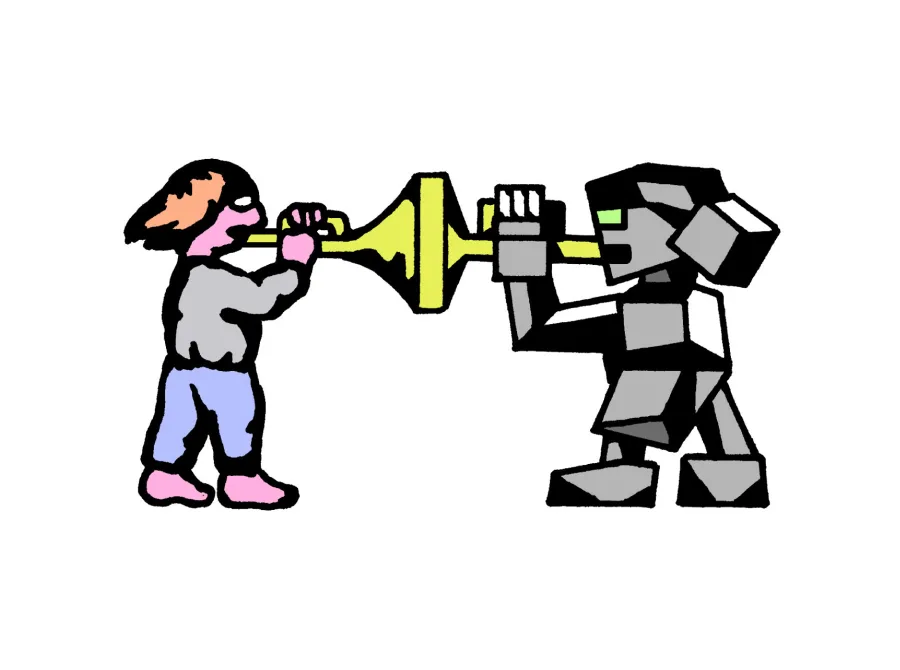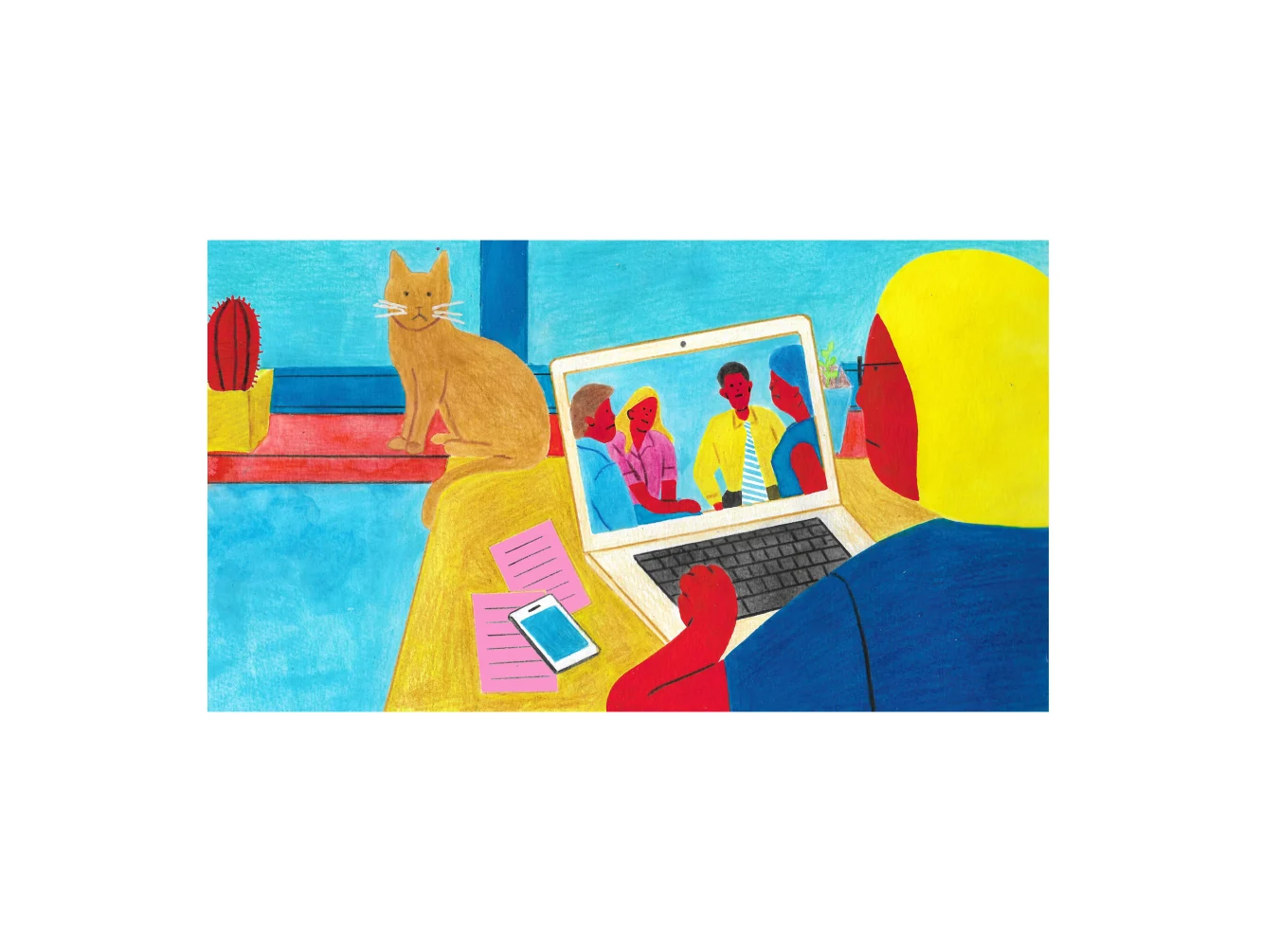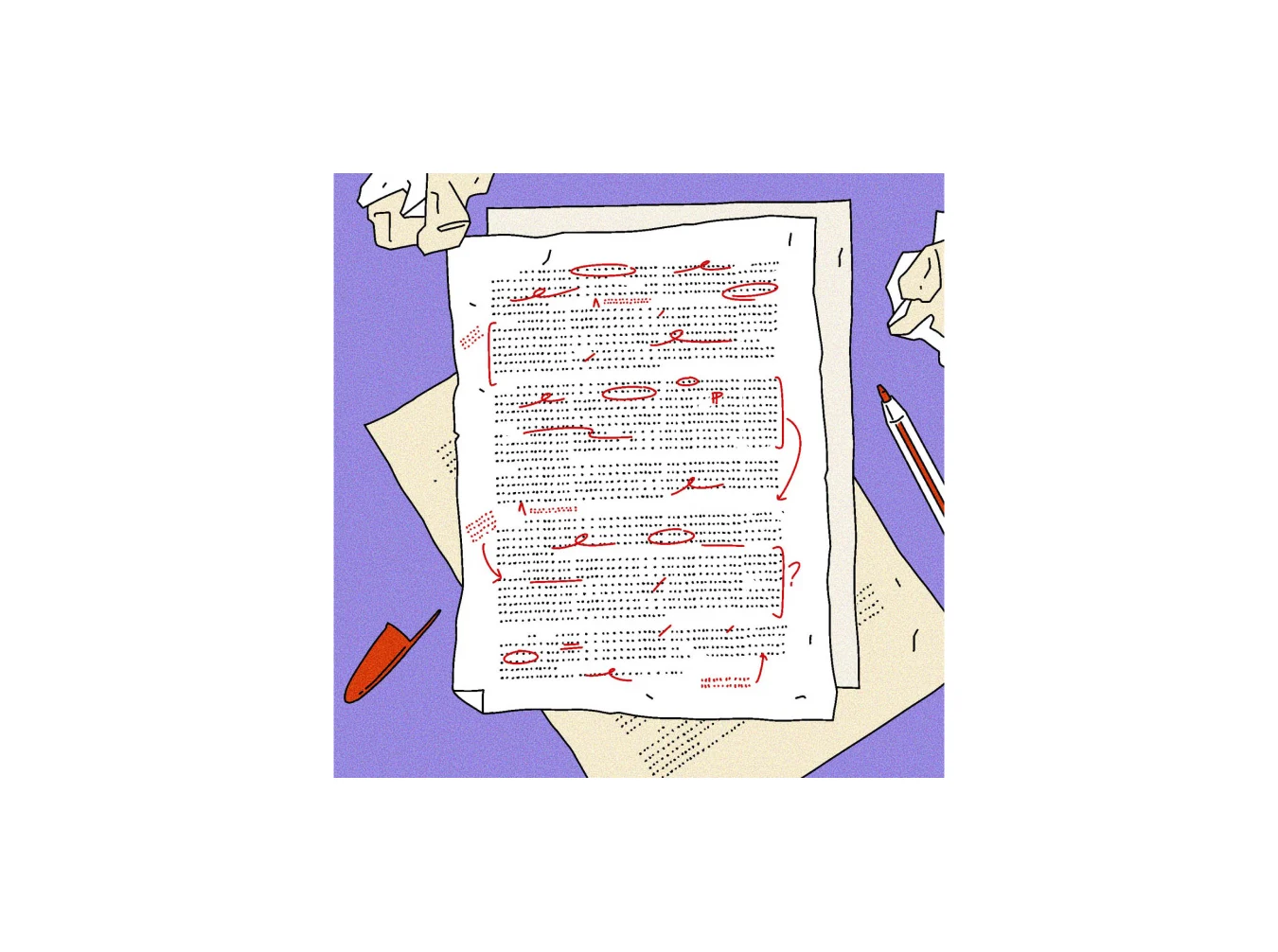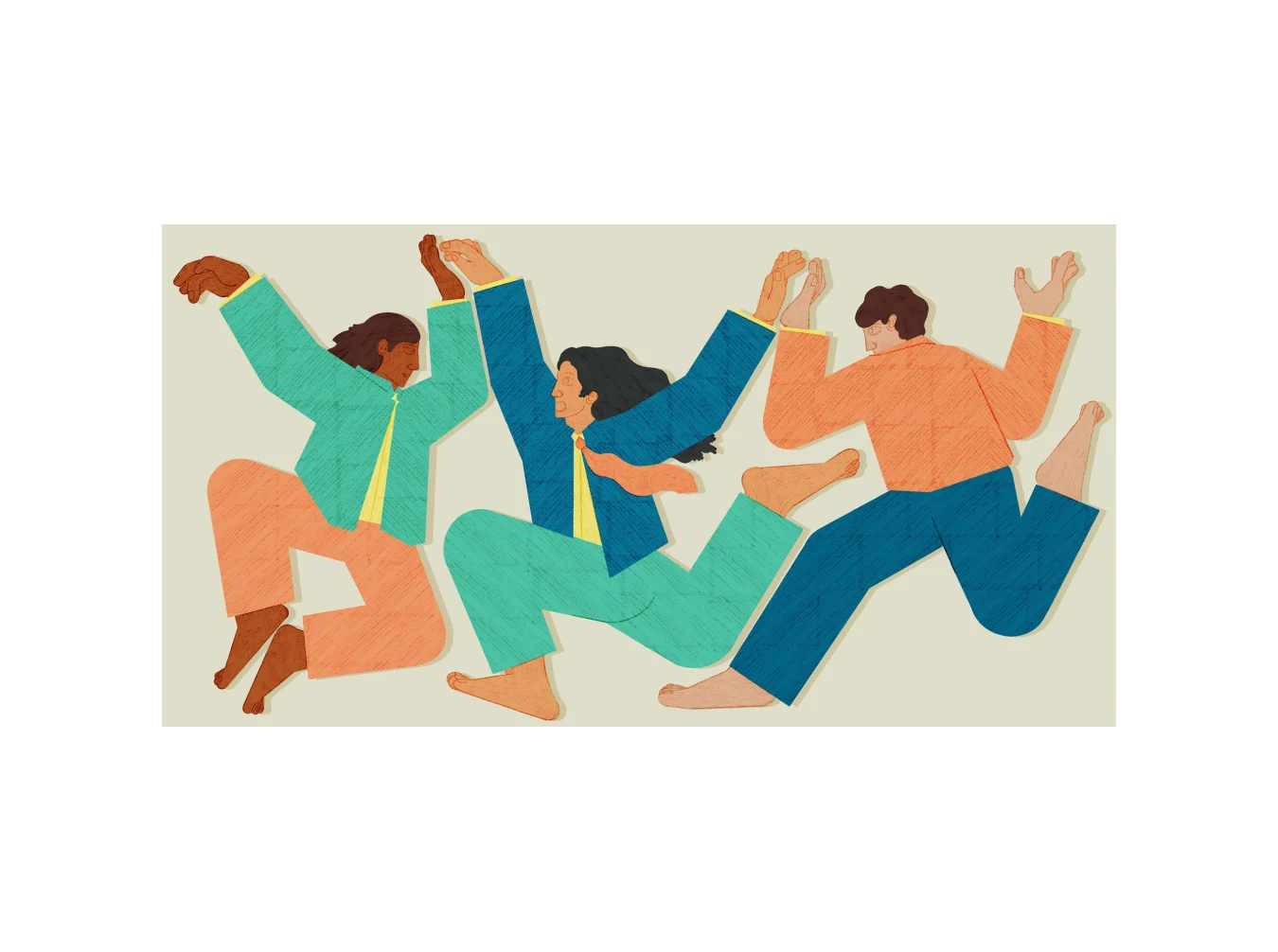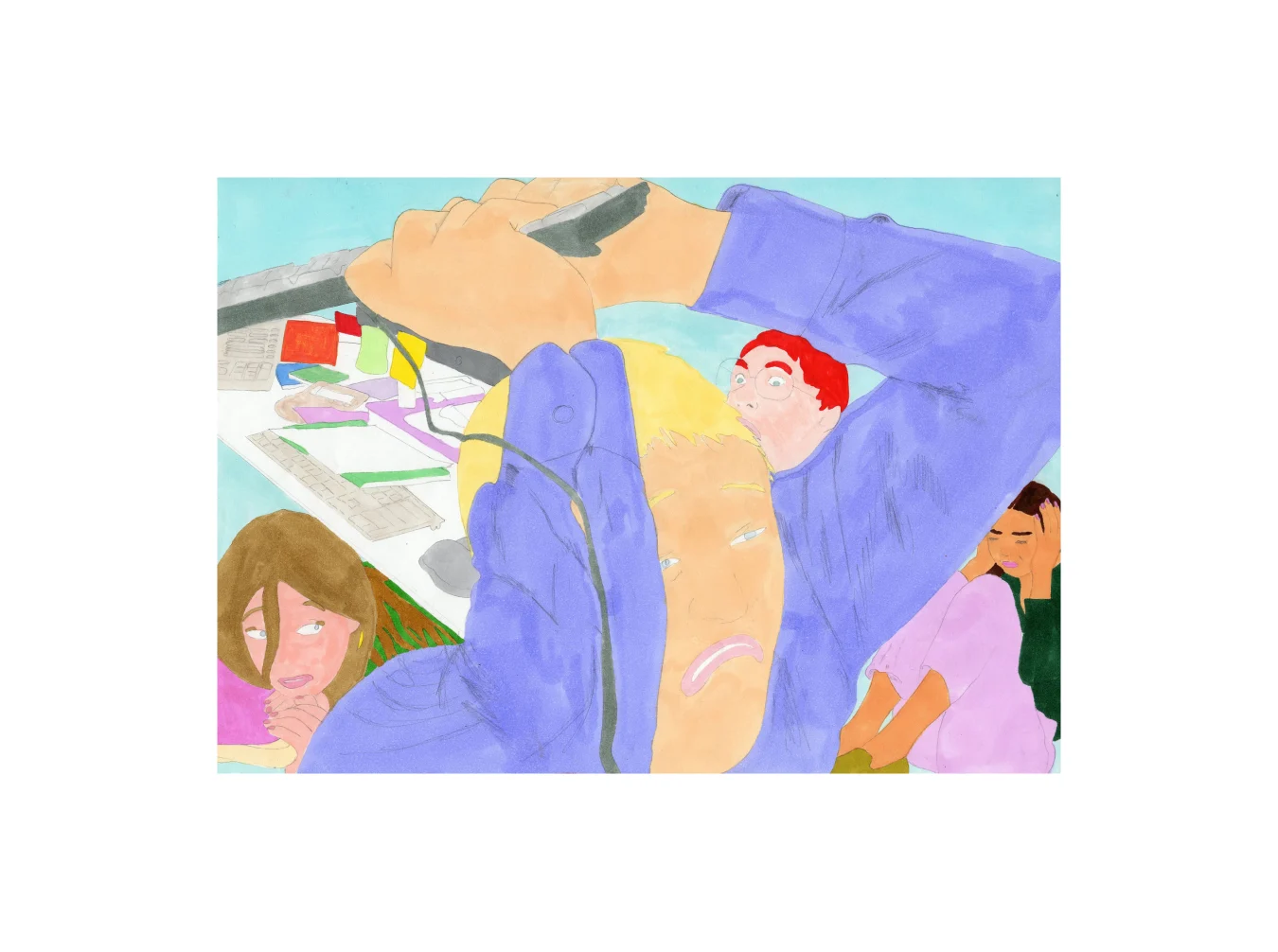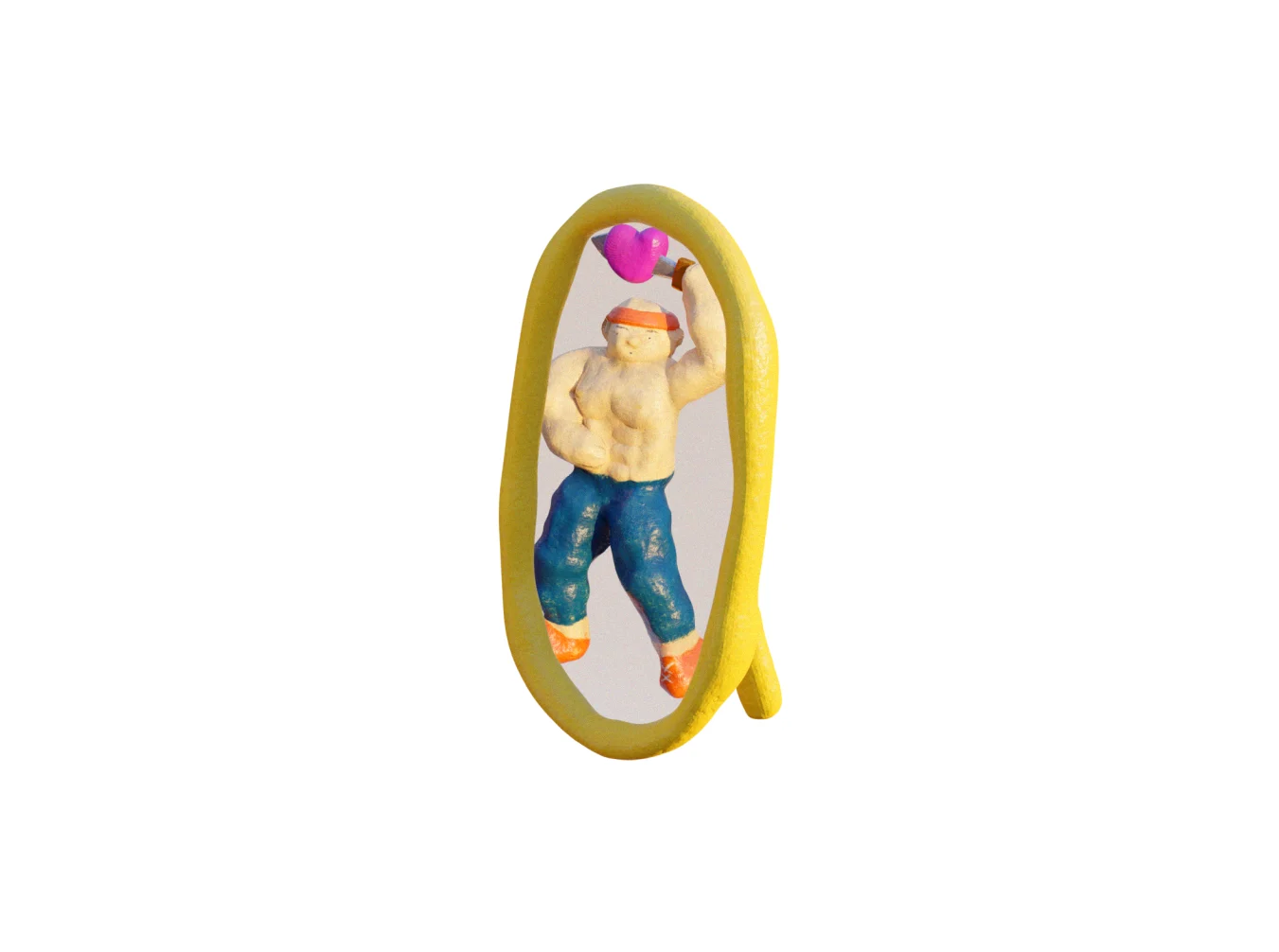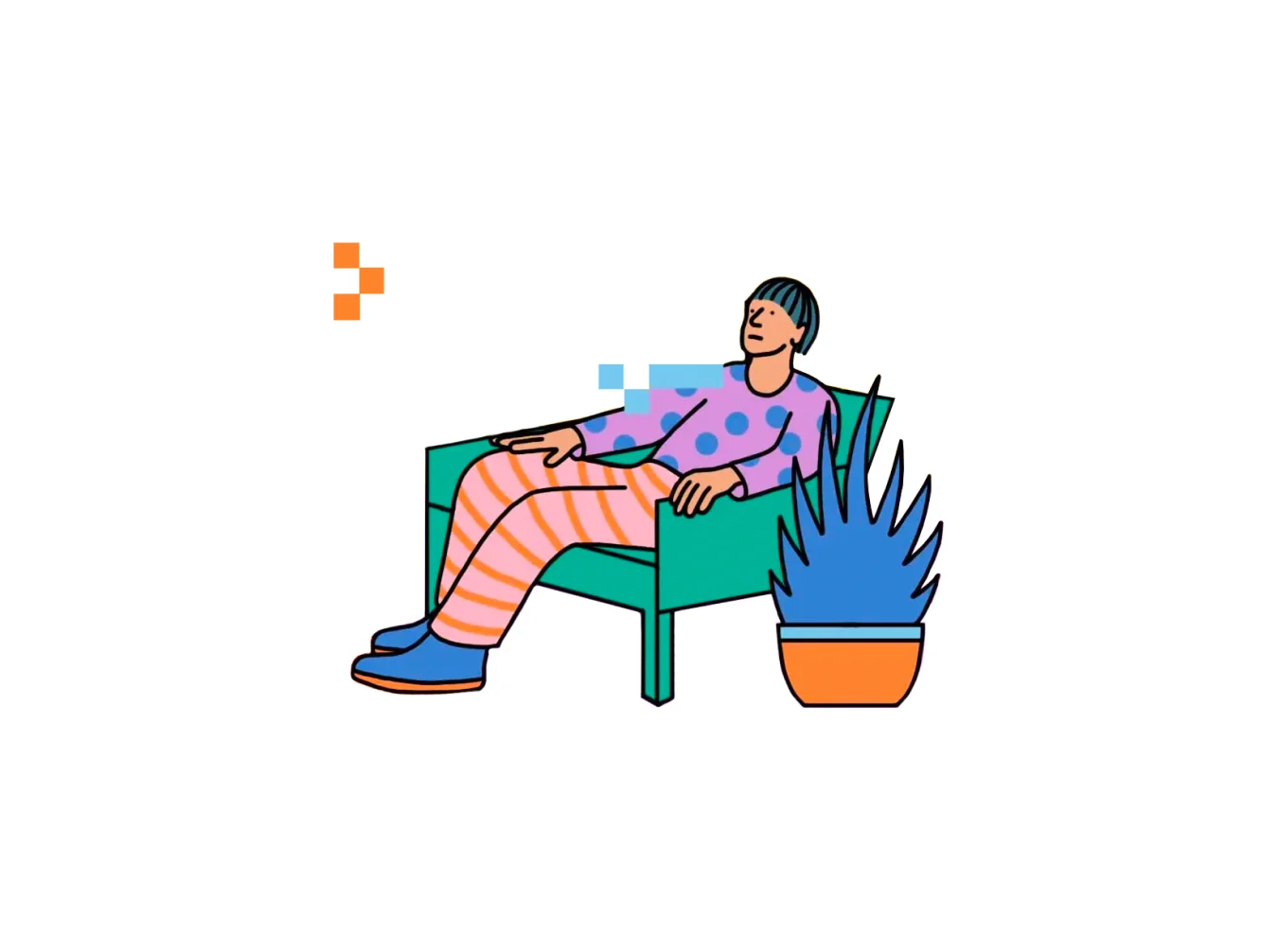
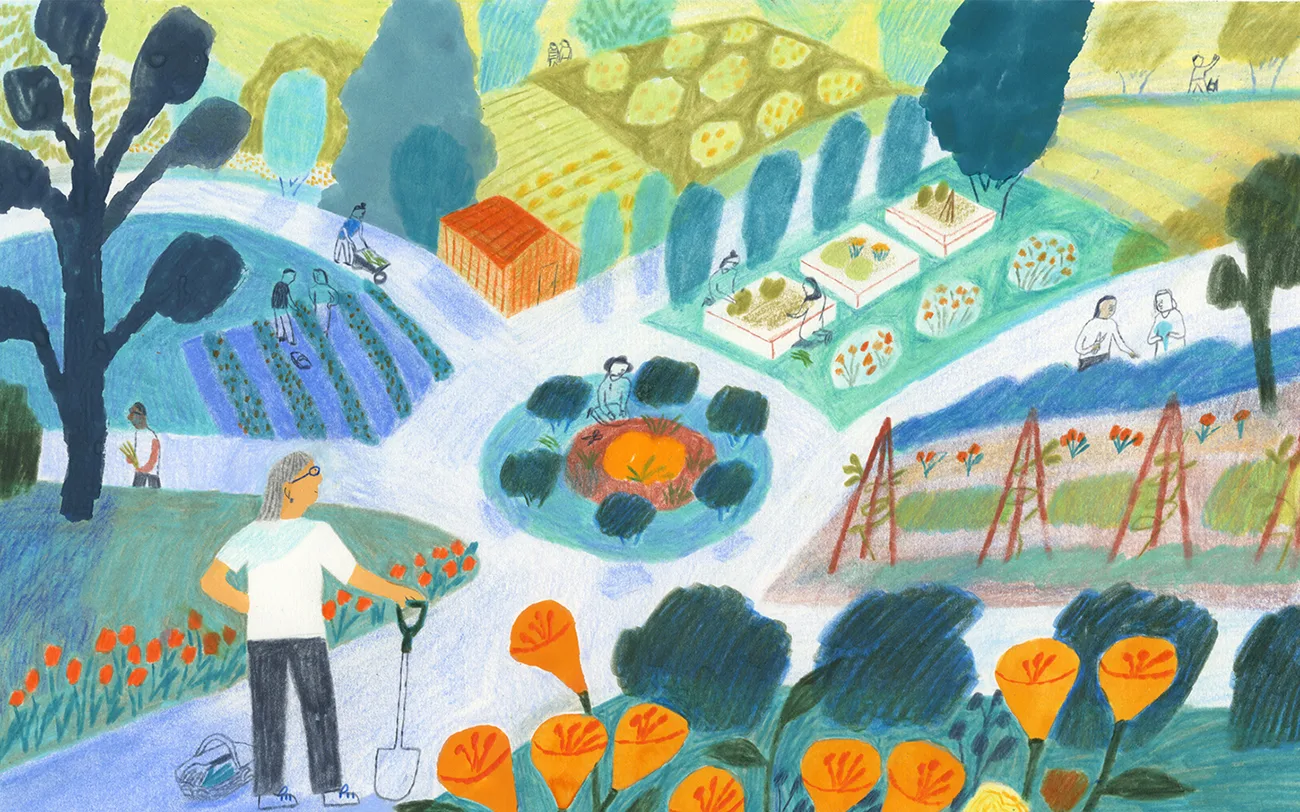
If experience is the key to making good work, why is there so much of a stigma around ageing in the workplace? In this piece, James Cartwright looks at the impact of rising life expectancy rates on working life and meets people who are choosing to age not just gracefully but productively.
Illustrations by Charlotte Ager.
In the year I was born, 1988, the global average life expectancy was 63. In the 33 years since, that average has increased to 72 and, if you live in one of the world's top 10 richest countries, the average person can reasonably expect to live to 84. This is all thanks to dramatic advances in medical science and public health policies that have allowed us to live longer, fuller lives than were previously possible. Those extra years can now be extremely active too. All over the world, people are staying healthy and keeping fit for decades beyond 65, an age that used to be the benchmark for retirement and the beginning of a slow process of decline.
At the same time as life expectancy is increasing, the ratio of the working population to the economically inactive is decreasing, meaning that more people are dependent on the state to provide for them than ever before, while the size of the population that works to fund the state is shrinking year on year. Broadly speaking, people have fewer children, grow old, retire and stay retired for longer, which is an expensive trend to maintain. Barring a few exceptions, this is a pattern that’s repeating itself all across the developed world; in Western Europe, North America, Japan and South Korea. Unless something drastically changes, it's a pattern that's likely to repeat in the developing world too.

By now you may be asking WTF this has to do with being a freelance creative, which is, after all, what these Stuff They Don't Tell You features are all about. WELL… a few things actually. First, if these trends persist without any decisive policy action from governments, the likelihood is that the age at which people are entitled to retire and receive state support will have to rise. We're already seeing this happen in a number of different countries and in some, like the UK, this process has left thousands of people (mostly women) out of pocket and unable to retire when they had expected to. In short, it’s likely we’ll all be working an awful lot longer than previous generations, and we might as well get used to the idea and prepare for it now.
Practically that means thinking of our careers in a less singular fashion than was common in the past. If we’re going to work for at least an extra decade, we could just spend those 10 years doing more of the same, or it could offer the opportunity to squeeze a few different careers in before retirement.
In the US, beginning a new career later in life is known as an “encore career,” and it’s estimated that nine million people between the ages of 44 and 70 have already made the move into one.
Take 52-year-old Luis Mendo; a Spanish illustrator living and working in Tokyo. Luis graduated from design studies in Madrid and Groningen before going on to become a creative director at a well-respected Amsterdam design studio. After that, he established his own studio, specialising in magazine design, which he ran for eight years before burning out and starting again. The death of his father and a three-month sabbatical in Japan made him rethink his whole outlook on work and life, so after shutting his studio down, he moved permanently to Tokyo where he began drawing professionally – something he’s now been doing for seven years.
After chatting for a while, they both looked across the table at me and said, ‘We thought you’d be a lot… younger.’
Then there’s 62-year-old Shiralee Swan, who worked full-time as a senior staff photographer for British local news outlets The Essex Enquirer, The East London Enquirer and The Thurrock Enquirer. In 2019, the year she turned 60, the holding company of all three newspapers went into liquidation, so Shiralee launched her freelance photography career in early 2020; “I like the challenge and the freedom of building my own brand,” she says. She’s since gone on to win awards with The Guild of Photographers and the National Society of Photographers.
While these two have been lucky enough to enjoy second winds in their careers, as a society our attitude towards ageing on the whole is pretty poor. “Old age exposes the failure of our entire civilisation,” wrote Simone de Beauvoir, referring to the way in which modern Western society marginalizes people in their “third age.” These failings are pervasive in our industry; it's one that tends to value youth above all else, overemphasizing the achievements of recent graduates or the under-30s instead of respecting the contributions of practitioners who have reached middle age and more. “Ageing is an interesting one in our industry,” says illustration agent Jon Cockley. “There's so much emphasis on youth and newness. It's a bit like the music industry I sometimes think.”
This is by no means an issue specific to the creative industries, but one that affects Western society more generally. Our attitudes towards ageing are out of step with the reality of growing old that modern healthcare has created, so much so that The World Health Organization has dubbed the years 2020-2030 “The UN Decade of Healthy Ageing,” and implemented an in-depth programme of action among its member states. This is predominantly a response to the marginalization of older members of society and the negative impact on their health and wellbeing, but also an attempt to “confront multiple barriers that prevent their full participation in society.”
These barriers include poor attitudes towards ageing in the workplace and prejudice towards people who continue to work into their “third age.” In a 2015 survey of public perception, more than half of Europeans believed that age was a disadvantage for job applicants who were 55 and older, but only 16% believed it was a disadvantage for jobseekers younger than 30. Research has also shown that employers are less likely to hire older applicants than younger applicants; that once employed, older workers have less access to training; and that those who face ageism in the workplace are more likely to retire early.
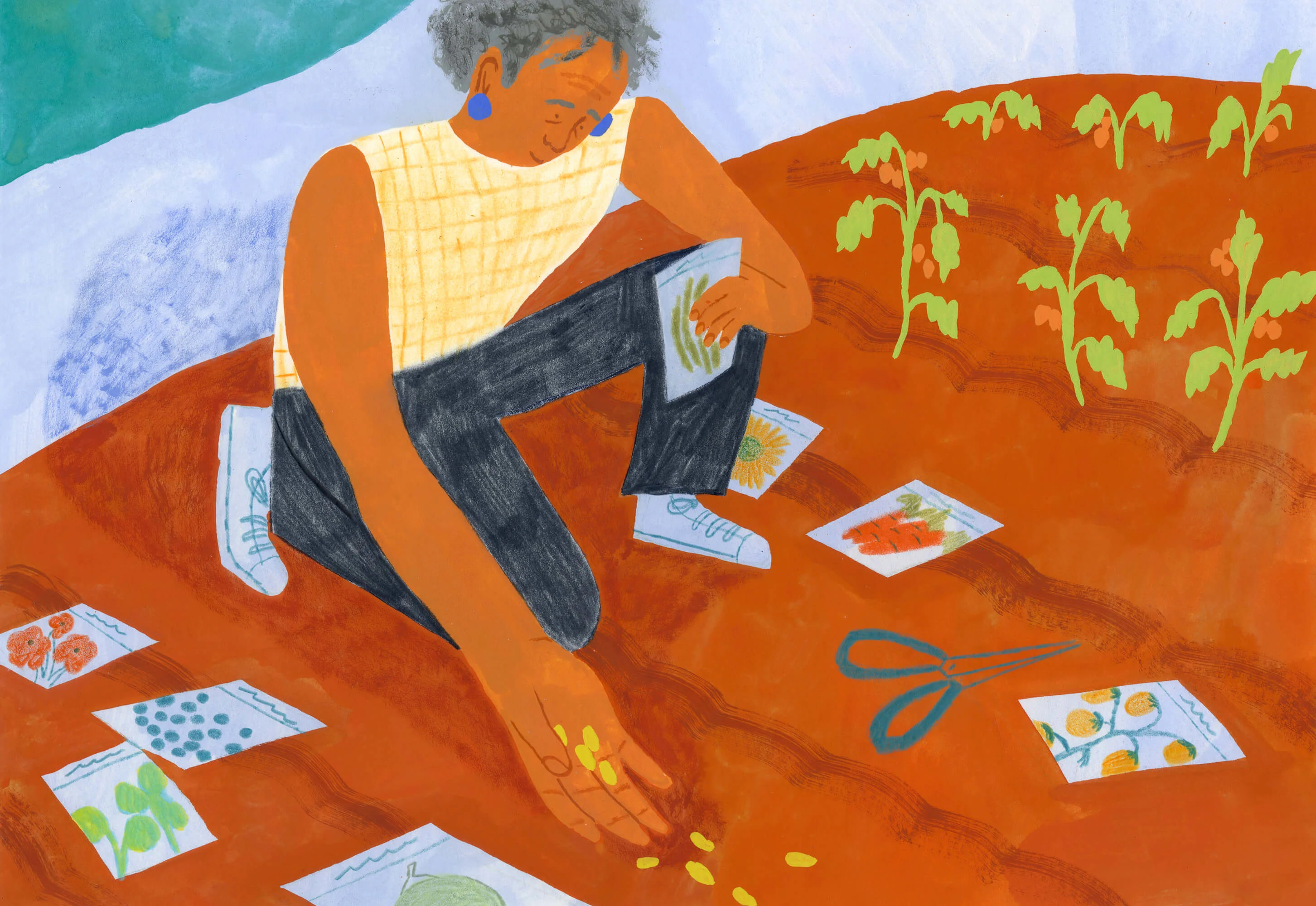
I don’t know about you, but if I’m going to work into my 70s, the last thing I want is to struggle to find work only to be ignored or dismissed by younger colleagues when I eventually do land a job. In this respect, self-employment offers a way around some aspects of workplace prejudice as it sidesteps many of the processes that allow age-based discrimination to proliferate. For example, freelancers rarely have to produce a CV, so nobody ever has to know their real age. “I’m not sure many clients even know how old I am,” says Luis. “Often they jump in surprise when I tell them I was an art director in The Netherlands for 20 years before doing illustration.”
“For me, age doesn’t even come into the equation,” says Shiralee. “People contact me because they like my style of photography and my experience.”
But it’s not always so simple. When she returned to her career as a freelance illustrator after raising her family, Lis Watkins was surprised to discover that some gallerists were reluctant to work with a woman in her 50s. “About a year after starting my drawing blog, I had an enquiry from a pop-up gallery in East London who were interested in the work and arranged a meeting. After showing some pieces and chatting for a while, they both looked across the table at me and said, ‘We thought you’d be a lot… younger.’ It did make me wary of revealing my age and I resisted putting a clear profile photograph of myself online until fairly recently.”
For others, age has a direct impact on the range of clients who choose to hire them and the types of work they want to hire them for. “My age most likely does impact the kind of work I am offered,” says 47-year-old self-employed brand strategist and brand voice consultant Emily Penny. “I’m best working for brands that I understand, and while I don’t have to be the exact target market, it does help. But it’s all about fit. I have lots of work, and I am happy with what comes my way and what I choose to work on.”
One positive aspect of working longer is the greater opportunity for more generations working together in the same space.
While there are decades between the ages of Emily, Lis, Luis and Shiralee, and plenty of differences in their circumstances, what unites them is a refusal to see the second or third stages of their careers in anything but a positive light, something that those of us in the earlier stages of our careers should bear in mind as we age. Experiences of ageism are not only bad for mental health (globally, about 6.33 million cases of depression are estimated to be attributable to ageism) research shows that negative self-perceptions of ageing (how you feel about yourself as you age) can impair mental processing speeds and accelerated cognitive decline. So while it may sound condescending to suggest that your own attitude towards ageing is important, statistics show it can have a huge impact on your quality of life.
In her book, Why Grow Up, philosopher Susan Neiman laments the fact that adulthood is so often framed as a process of giving up on dreams and possibilities and accepting a banal and underwhelming reality. But, she says, if you’re able to reject and subvert this sorry state of affairs then ageing offers the chance to feel more liberated than is possible in your youth. “I don’t mean to say that one doesn’t give a damn about how the world perceives you, but you certainly are less concerned about other people’s opinions,” she says.
This is an stance that Emily echoes: “I’m a 46-year-old woman, mother and company director with a 25 year career behind me. Now is the time for me to be taken seriously. I just want a little respect.”
A-men.
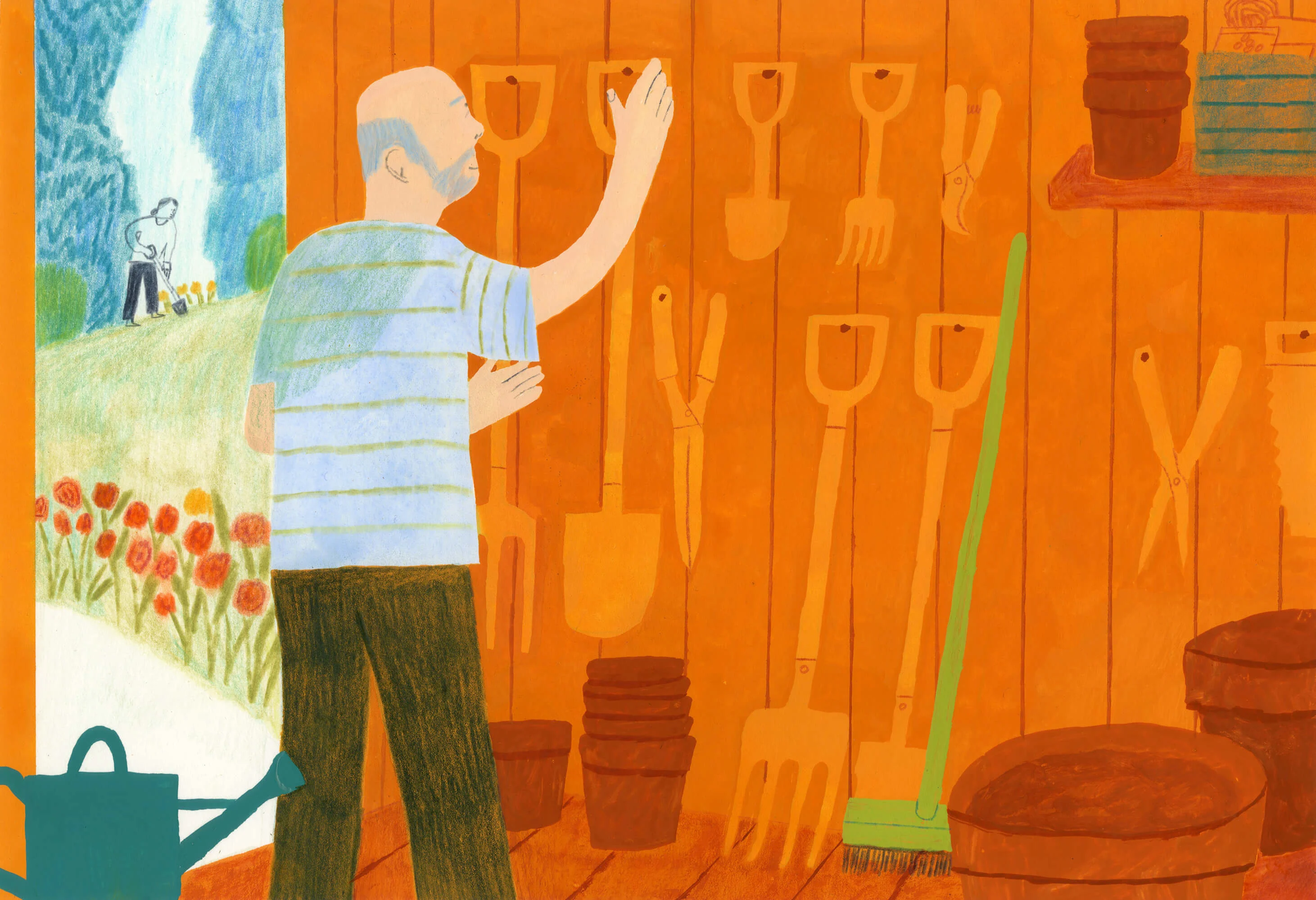
So you’ve hit 40, 50, maybe even 60 and are looking for a change of pace and direction. How are you going to go about making the move into something new?
Take a break
You can’t make a big life change without taking some time out from the daily grind, first to plan the change and then to see it through. Working full-time simply doesn’t allow the headspace for an overhaul of your life. “With the death of my father, I came to evaluate more seriously what I was doing, the way I was spending my life,” says Luis. “So I took a three-month sabbatical in Tokyo, on my own, to think things over. That trip made me rethink why I was living in Amsterdam and why I was a magazine designer at all. Japan made a big impression on me, so four years later I took a plane and moved definitively to Tokyo. I just wanted a radical change of direction in my life and took the plunge.”
Globally, about 6.33 million cases of depression are estimated to be attributable to ageism.
Learn to live with less
If you’re very lucky you can switch careers without it having too much of an impact on your finances, but it’s far more likely that a change of direction will result in a loss of earnings too. For Luis, the difference was huge: “Design was so well paid compared to illustration. It’s very unfortunate that image making has been devalued so much in such a short time. I remember briefing illustrators 10 years ago for three or four times what art directors are offering me today. It’s truly sad, but understandable in a world submerged in imagery. Artisans are now an endangered species.
“At first I adjusted by making a lot of work and taking all the jobs that came my way. But I also adapted to a new, more simple lifestyle that would allow me to live with less. Life in Tokyo is cheaper than in Amsterdam and I was lucky I found a good apartment to live in for a relatively low price. You live a much richer life when you can survive with less.”
Shiralee also experienced a substantial loss of earnings when going freelance, but, she says, “I am in a very fortunate position in this stage of my life. My expenses are not large.”
For Lis, the only way a freelance career was possible was because her partner gave up his own freelance career in favor of a stable teaching job. "The move to a salaried position undoubtedly had a stabilizing effect on family finances and also in turn, allowed me the opportunity to properly restart my career," she says.
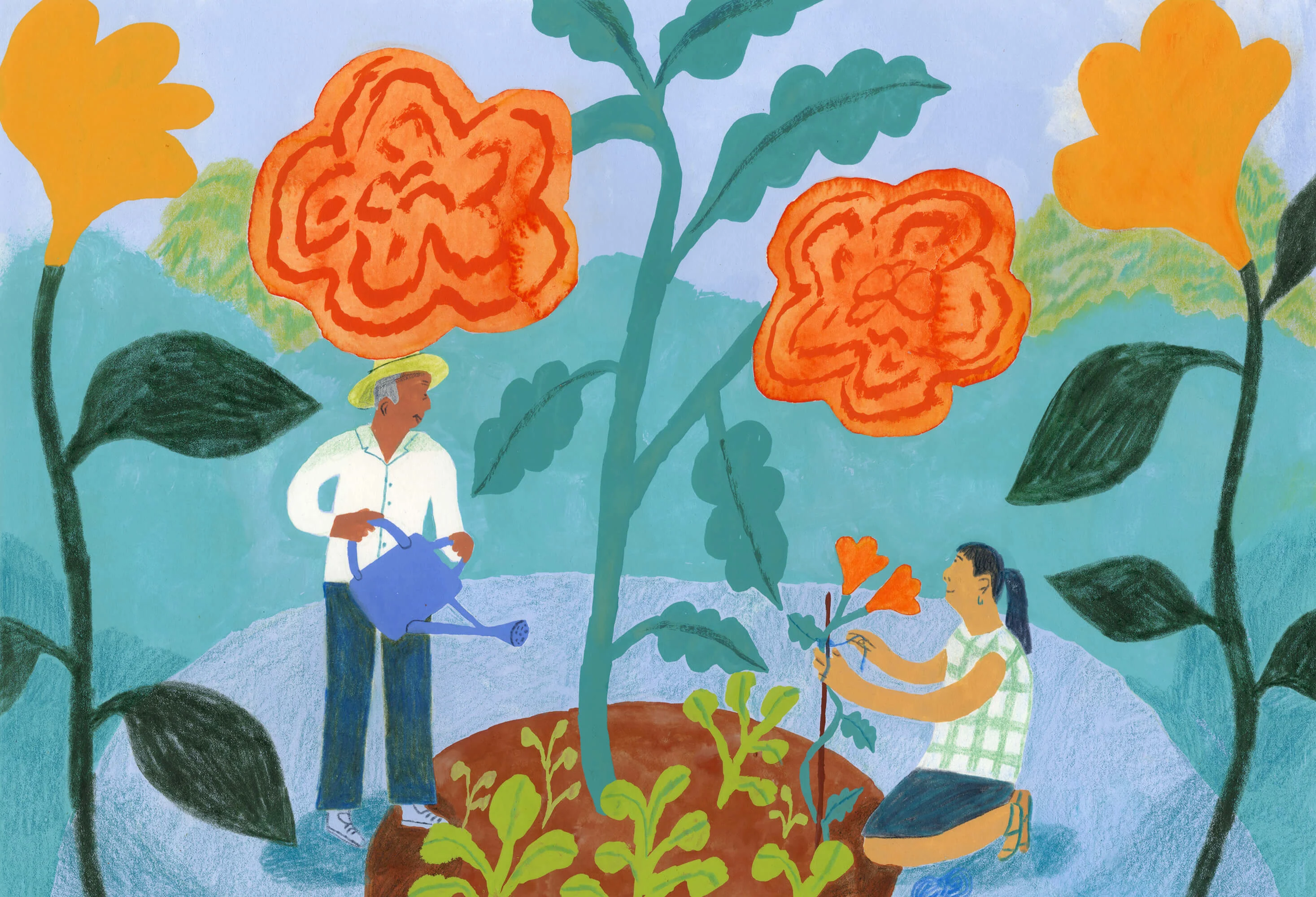
Look at what the kids are doing
One positive aspect of working longer is the greater opportunity for more generations working together in the same space. While people starting out on their careers can learn a lot from the experience of older generations, there’s plenty that young folks can teach people moving into their second or third careers, too. “I find a lot of inspiration looking at the way young creatives are so entrepreneurial in their approach to their careers,” says Lis. “It’s great to see different ways illustrators diversify and create their own career path rather than waiting for others to commission them.”
Luis agrees: “I see some people of my age get stuck in their old ways and convictions too often. I completely dislike this and try not to do it myself. You have to make an effort to keep your heart open and stay curious.”
I’m a 46-year-old woman, mother and company director with a 25 year career behind me. Now is the time for me to be taken seriously.
Enjoy the confidence that comes with experience
Of course in so many ways, youth really is no match for experience, and that's particularly the case when it comes to having confidence in your abilities.
"By my age," says Emily, "most women have either given up or learnt how to doggedly stick up for themselves to be taken seriously in business. Women have much more of a sell-by date, with older women being dismissed and ignored more than any other group in society. But we come out stronger as a result. As I've gotten older I've found more confidence. You don’t have so much time left so you want to make the most of it. I know I will never be an employee again, so I have nothing to lose by speaking my mind."
"I’ve become more professional in my approach to clients and I value my skills much more than when I was younger," says Lis. "Second time around, I am placing more emphasis on organising the ‘business’ side of things as I can often spend 40-50% of my time on admin and marketing. Investing time and money in learning and developing new skills has also been important."
For Lis, the confidence of experience also translates into creativity. "Particular illustration styles have fallen in and out of fashion since I started in the business and I’m sure it will continue that way. I think it’s important to remember that creative talent can emerge at any age and often the more life experiences you have, the more you want to express that in a creative way. I like to think that there is room for everyone as long as you do your own thing and create work which is unique to you."





